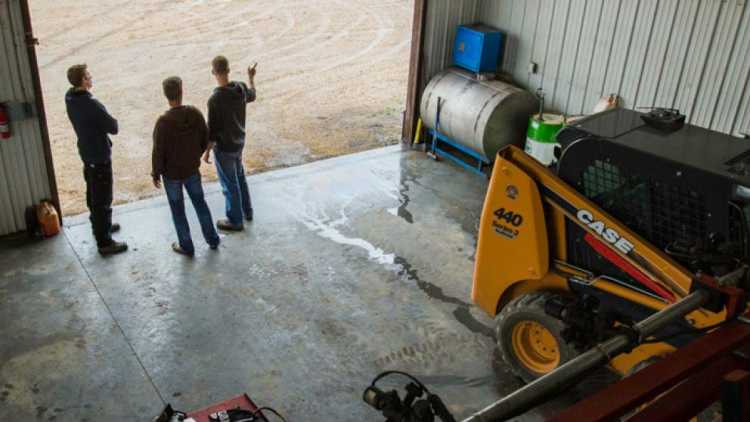Family farm transition – is fair always equal?


We ask
Rick Van Beselaere, a partner in the Regina based law firm of Miller Thomson LLP with more than 30 years of experience in banking and finance.
When allocating assets between farming and non-farming children in a transition, does fair always mean equal?
Rick: Some people assume that to be fair to their children, they must treat them equally. This often comes up in farm succession planning and estate planning whether the farm is passed to children while the parents are living or after they have passed away.
In my view, a transfer of a million in farm assets can’t be viewed the same way a million in cash. A child getting the farm assets has the ongoing business risk that is farming, and the farm assets are not liquid. In addition, the $1 million in cash will return value, but $1 million in farmland needs the hard work of the farming child to generate anything.
Whether the farm child or children have contributed more to the farm business than their siblings may also be a factor. Every family must come to its own conclusion about what is fair.
Can life insurance policies be used to equalize what each kid receives?
Rick: Life insurance can be an appropriate planning tool, but with the increasing value of farm businesses, it may not be the only tool needed. Buying a large enough life insurance policy to set up against farm asset values may be unavailable or simply too expensive.
And even if a policy is available, premiums escalate with the age of the insured. Life insurance can be quite expensive by the time the insured is in their 60s.
What about passing some of the farmland to non-farming children?
Rick: Including this as part of a succession plan is common.
There should be consideration to whether a mechanism is needed to give the farming child or children access to land passed to non-farming children. Agreements can include the right of the farming child or children to lease these lands from the non-farming family. Mortgages can be provided in favour of the non-farming child or children to provide for future payments.
There are also other ways to involve or provide for non-farming children from the farming assets. However, it’s important to consider all the eventualities, and be creative. For instance, there can be a cooling-off period where the land transferred to non-farming children can’t be sold for a period to allow the farming child to reach a stable point where the assets can be “bought out.”
There can also be options to purchase, rights of first refusal and other rights included in these sorts of arrangements.
What are some common challenges in the planning process?
Rick: The first challenge is to come up with a formal agreement and discuss it with the entire family.
It’s important to capture that plan in writing to avoid misunderstandings and prevent disruptions to, or failure of, implementation of the plan.
There's need to fully analyze what the farm business consists of, what the parents need, what the farm will be able to produce, what the farm can support in terms of debt and other obligations, and what the farm business will look like in the hands of the farming child or children. Tools like this transition conversation starter can help.
No planning should occur without a thorough review and understanding of these key questions. Then the business owners can pursue the plan that best achieves their goals and objectives.
Are there special considerations for incorporated farms?
Rick: If there’s going to be a farm corporation, and there are many reasons to utilize a corporation, there should be different classes of shares. Dividends are a good way to allocate income from the corporation. Different classes of shares allow you to pay different dividends. You can’t pay different dividends to the same class of shares.
It’s best to set up different share classes when the corporation is initially established. While it can also be done later by amending the corporation, that can be more complicated.
Whether or not a farm is incorporated, a detailed business analysis is a very important part of succession planning. If the goal is to maintain a viable farm for the next generation, a thoroughly defined and well considered succession plan will help guide and implement the allocation of assets to farming and non-farming children and preserve the farm business.
From an AgriSuccess article.
Find resources and tools for any stage of the planning process

Sometimes a farm transition plan involves family members asserting their independence and heading in different directions.
